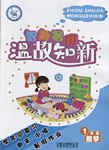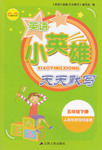题目内容
The wave of panic buying 抢盐风波
Many people in China rushed to store as much iodized salt(含碘食盐)as possible. This trend has led to grocery store shelves being ransacked over the past several days.
"I went looking for salt in the supermarket, stores and street markets, and it's all sold out."
It all stems from the rumor that iodized salt could help ward off radiation poisoning spreading from Japan's Fukushima Daiichi power plant. Consumers also worried that the nuclear plumes might spread to China by air and sea, contaminating food sources, including salt taken from the sea.
The wave of panic buying spread quickly throughout the country, driving up salt prices by five to ten fold(涨到五到十倍)in some cities.
Even regions rich in salt production, like Jiangxi Province face sudden shortages.
Local authorities have stepped in to stabilize the market. As well, state-owned salt companies have been urged to increase their supply.
Facing expanding market demand, distribution centers like this one in Beijing have taken extra measures to ensure they are well-prepared.
Wang Yun, Beijing Salt Industry Corporation, said, "Our storage reserves can guarantee a two-month supply for the Beijing market."
Measures are being taken to prevent panic buying. Health authorities and experts have begun informing the public that the rumor of salt's protection against radiation is "totally unfounded"(完全是无稽之谈). The public is being urged to be more rational when buying salt.
[写作内容]
1.以约 30 个词概括这篇短文的主要内容;
2.以约120词写一篇读后感,说明“国民素质的提高和科学知识的普及等问题的重要性”,内容包括:
(1)议论“抢盐心态”,发人深思。透过现象,从中折射出若干问题的感受;
(2)以你或他人的经历说明;
(3)谈谈你从中悟出的道理。
[写作要求]
1.在作文中可以使用亲身经历或虚构的故事,也可以参照阅读材料的内容,但不得直接引用原文中的句子。
2.作文中不能出现真实姓名和学校名称。
[评分标准]
概括准确,语言规范,内容合适,篇章连贯。
From the passage we know many Chinese rushed to stores to buy as much iodized salt as they could, causing salt prices driving up. But all about these panic buying is just because of the rumor of salt's protection against radiation.
What a foolish thing they did! The blind following of trends reflect a widespread lack of basic scientific knowledge. Rumor said the consumption of iodized salt would help safeguard against the effect of radiation. But actually an adult would probably need to eat up 3 kilograms of salt at a radiation if it is to have any effect against radiation-----meaning that they would likely die quicker from consuming that much salt than from any minimal exposure to radiation. Rumors are sometimes more catastrophic than the disasters themselves. What’s more, what they did not realize was that only 20% of China’s salt comes from the ocean, and most salt on sale is mined rock salt.
The same thing happened in 2003. One of my relatives heard someone saying that smoking was a cure for SARS, so he became habitual smoker. At the same time, people rushed to buy vinegar, so did he. When he didn’t use those vinegar, he rushed to the end of queue to buy high-priced salt.
The outdated Chinese way of looking at this was best described by Confucian philosopher Xun Zi, who said more than 2,200 years ago: “Rumors stop at the wise.” And anyone can be wise, as Mencius put it, all men can become a sage(哲人). So what we want to do now is to improve our personal qualities.
【解析】略

 智趣暑假温故知新系列答案
智趣暑假温故知新系列答案 英语小英雄天天默写系列答案
英语小英雄天天默写系列答案 暑假作业安徽少年儿童出版社系列答案
暑假作业安徽少年儿童出版社系列答案The dirty, homeless man sat on the pavement, staring at the atones. He thought back more than twenty years to when he was a boy living in a small red brick house on this very street. He recalled the flower garden, the swing his dad made, and the bike he had saved up for months to buy.
The man shrugged impatiently, for the brightness of those pictures hurt him, and his memory travelled on another ten years. He had a job by then, plenty of friends and started to come home less. He did not really want to remember those years, nor the day when, because o’ debts, he had gone home planning to ask for money. He felt embarrassed, but he knew exactly where his dad kept the money. When his parents stepped out of the room, he took what he wanted and left.
That was the last time he had seen them. Ashamed, he went abroad, and his parents knew nothing about the years of wandering or time in prison. But locked in his cell he often thought of home. Once free, he would love to see his parents again, if they were still alive, and still wanted to see him.
When his prison time was up, he found -a job, but couldn’t settle. Something was drawing him home. He did not want to arrive penniless, so he hitchhiked most of the long journey back. But less than a mile from his destination he started to feel sick with doubt. Could they ever accept this man who had so bitterly disappointed them?
He spent most of that day sitting under a tree. That evening he posted a letter which, although short, had taken him hours to write. It ended with:
I know it is unreasonable of me to suppose you want to see me ... so it’s up to you. I’ll come early Thursday morning. If you want me home, hang a white handkerchief in the window of my old bedroom. If it’s there, I’ll come in; if not, I’ll wave good-bye and go.
And now it was Thursday morning and he was sitting on the pavement at the end of the street. Finally he got up and walked slowly toward the old house. He drew a long breath and looked.
His parents were taking no risks. ________________________________________________
_______________________________________________________________________________
The man threw his head back, gave a cry of relief and ran straight through the open front door.
【小题1】 Why did the man shrug impatiently (paragraph 2) while he was thinking of his childhood?
| A.The thoughts made him angry. |
| B.He felt he had wasted time. |
| C.He was anxious to go home. |
| D.The sweet memory caused him much pain. |
| A.He doubted if his parents still lived in that house. |
| B.He had much news to tell his parents. |
| C.He felt ashamed to ask for forgiveness. |
| D.He was longing to return home and felt excited. |
a. He took the money from his parents.
b. He bought a bicycle with his savings.
c. He was sentenced to prison.
d. He wrote the letter home.
e. He sat on the pavement.
f. He hitchhiked back home.
| A.b, a, c, d, e, f | B.b, a, c, f, d, e |
| C.a, c, b, d, f, a | D.a, d, b, c, e, f |
| A.Every inch of the house was covered in white. Sheets, pillowcases and table clothes had been placed on every window and door, making it look like a snow house. |
| B.The house before him was just as he remembered: the red bricks, the brown door and nothing else. |
| C.A colourful blanket was over the front door. On it, in large letters, was written, "Welcome home, son |
| D.A police car was parked in the drive way, and two officers stood at the front door. |
| A.Sweet Memory | B.White Handkerchief |
| C.Abandoned Son | D.Leaving Home |
 young man who, only a month before, was completely unknown. Yet on that summer day in 1927 his name was on the world's lips
young man who, only a month before, was completely unknown. Yet on that summer day in 1927 his name was on the world's lips Charles Lindbergh, the first man to fly the Atlantic alone.
Charles Lindbergh, the first man to fly the Atlantic alone.